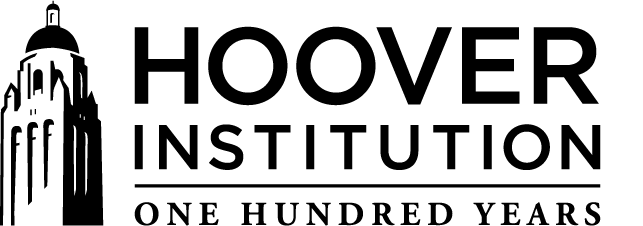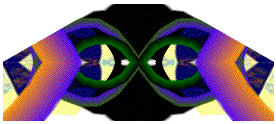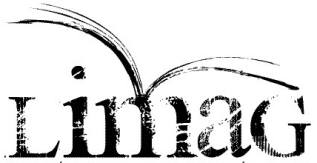What is a primary source?
Each academic discipline creates and uses primary and secondary sources differently; the definition of a primary source only makes sense in the CONTEXT of a specific discipline or field of inquiry. In the humanities and the arts, a primary document might be an original creative work. Or, it might be a part of the historical record written about, or near the time of an event. In the sciences, it might be a publication of original research (such as a journal article)
Here are two definitions that try to capture the elusive nature of primary documents:
A definition from Cornell: Primary sources are the main text or work that you are discussing (e.g. a sonnet by William Shakespeare; an opera by Mozart); actual data or research results (e.g. a scientific article presenting original findings; statistics); or historical documents (e.g. letters, pamphlets, political tracts, manifestoes).
["What is a Source?" Recognizing and Avoiding Plagiarism. Cornell University. College of Arts and Sciences.]
A definition from Yale: "A primary source is firsthand testimony or direct evidence concerning a topic under investigation. The nature and value of a source cannot be determined without reference to the topic and questions it is meant to answer. The same document, or another piece of evidence, may be a primary source in one investigation and secondary in another. The search for primary sources does not, therefore, automatically include or exclude any category of records or documents." [Yale University Library Primary Sources Research Colloquium in History]
Finding primary sources
These words and phrases are standard terms (metadata) used in many databases and library catalogs to signal primary sources.
- charters
- correspondence
- diaries
- early works
- interviews
- manuscripts
- oratory
- pamphlets
- personal narratives
- sources
- speeches
- letters
- documents
So you might add one of these terms to your search. Thus: Haiti--History--Coup d'etat 1991 and add the subdivision "Personal narratives."
You are combining PLACE and TIME and SUBJECT and then TYPE OF SOURCE.
Don't forget to search for keywords in French as well as English, to boost your results.
What is CRL?
The Center for Research Libraries (CRL) is a consortium of North American universities, colleges, and independent research libraries. The consortium acquires and preserves newspapers, journals, documents, archives, and other traditional and digital resources for research and teaching and makes them available to member institutions through interlibrary loan and electronic delivery. Materials at CRL are available for long-term loan to researchers at member libraries (Cornell is a member).
Primary Source Digital Collections (Colonialism/Decolonization)
-
Les Centres des ressources documentaires
 French government documentation and cultural resources.
French government documentation and cultural resources. -
Eurodocs: France, 1789-1891
 (Lee Library, Brigham Young University)
(Lee Library, Brigham Young University) -
Gallica
 Digitized archives from the French national library (Bibliotheque nationale de France, or BnF) and other French libraries. Rich in images.
Digitized archives from the French national library (Bibliotheque nationale de France, or BnF) and other French libraries. Rich in images. -
Making of the Modern WorldTracks the development of the modern, western world through the lens of trade and wealth. Includes books, serials, pamphlets, essays and more. Sourced from leading collections at major libraries around the world. (Cornell license)
Web Projects
-
Colonial Architecture: French Empire Project(Queens University, Kingston, ON)
-
Colony in Crisis: The Saint Domingue Grain Shortage of 1789
 (University of Maryland)
(University of Maryland) -
French and Francophone Digital Humanities Projects(University of Florida)
-
Hoover Institution French Colonial Africa
 (Stanford University)
(Stanford University)
Archives (France)
-
Archives Made Easy
 Archives Made Easy is a good place to start to find archived books, articles, etc. from around the world.
Archives Made Easy is a good place to start to find archived books, articles, etc. from around the world. -
Les sources de l'histoire littéraire aux Archives nationalesParis, by Danielle Gallet-Guerne, 1961. Uris Library, A.D.White Z2171 .G13
-
Archives nationales(Archives de France)
-
IMEC Institut Memoires de l'Edition Contemporaine(Institute of Contemporary Publishing Archives)
-
Recharche DocumentaireParis Archives
-
Archives and libraries in France (with 1991 supplement)Library Annex
Oversize Z797.A1 W34 1991 +
- Centre des Archives du Monde du Travail (CAMT)
- Centre des Archives d'Outre-Mer (CAOM) Search Instructions
Archives departementales
Archives diplomatiques
Selection of primary documents online
-
ARTFL(for Cornell subscribers)
-
BDHLBanque de Données d'Histoire Littéraire
-
Europeana(Heritage collections)
-
C18-L's Selected Readings
 (Last updated 2006)
(Last updated 2006)












